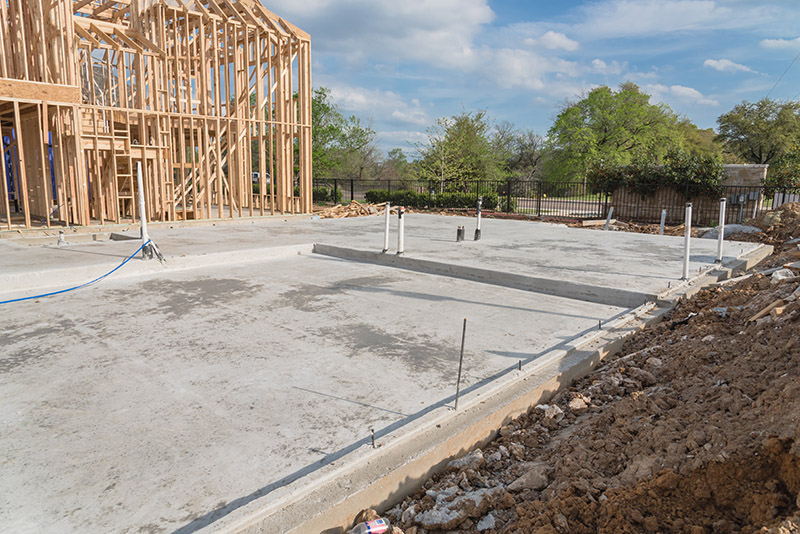Slab Foundations: Understanding the Pros, Cons, and Suitability for Your Texas Property
Slab foundations, where a concrete slab is poured directly on the ground, are a common foundation type in Texas. Like all foundation systems, they come with a unique set of advantages and disadvantages. As a property owner, it’s valuable to understand these factors, especially if you’re facing foundation issues or considering new construction.

Advantages of Slab Foundations
- Affordability: Slab foundations generally cost less to construct than other types of foundations.
- Simplicity of Design: Their relatively uncomplicated design often leads to faster construction.
- Direct Contact with Ground: This can be beneficial in some instances as a slab foundation can quickly absorb and release heat, potentially lowering energy costs.
- Durability: When properly installed, slab foundations are strong and long-lasting.
- Pest Resistance: With fewer gaps and openings, slab foundations are less vulnerable to termite infestation.
Disadvantages of Slab Foundations
- Vulnerable to Soil Movement: Texas soil, especially expansive clay, can shift due to moisture changes, potentially causing slab cracks.
- Plumbing Challenges: Plumbing pipes run within the slab. Leaks can be difficult to detect and repair, and potentially causing foundation issues.
- Limited Underfloor Space: Slab foundations don’t provide a crawlspace, making future access to plumbing and electrical systems more complex.
- Less Ideal for Sloping Sites: Adapting a slab foundation to a significantly sloping lot can be expensive or may not be feasible.
- Potential for Moisture Problems: Without proper drainage and moisture barriers, slab foundations can be susceptible to moisture intrusion and mold growth.
Factors to Consider Before Choosing a Slab
- Soil Conditions: Expansive clay soil requires careful design and installation techniques to minimize potential foundation issues.
- Climate: Texas’ hot, humid weather, and periods of drought, influence soil stability and should factor into the foundation type decision.
- Site Topography: If your property is on a significant slope, a pier and beam foundation might be a more suitable choice.
- Budget: While slab foundations offer initial affordability, potential future repair costs in areas with less than ideal soil should be factored in.
Dodson Foundation Repair: Your Slab Foundation Specialists
Whether you have an existing slab foundation or are considering one for new construction, we’re here to help:
- Slab Foundation Inspections: Thorough assessments to identify any cracks, shifting, or moisture-related problems.
- Expert Repairs: We leverage proven solutions to stabilize your slab foundation and restore its integrity.
- Foundation Design Guidance: For new construction, we can advise on optimal foundation choices based on your soil, site, and budget.
Making Informed Choices for a Strong Foundation
Choosing the right foundation type plays a crucial role in the longevity and value of your property. Understanding the pros and cons of slab foundations is key to making an informed decision.
Whether you need a slab foundation inspection, repair, or advice for a new building, contact Dodson Foundation Repair today. Ensure your structure has a solid foundation to stand on.
